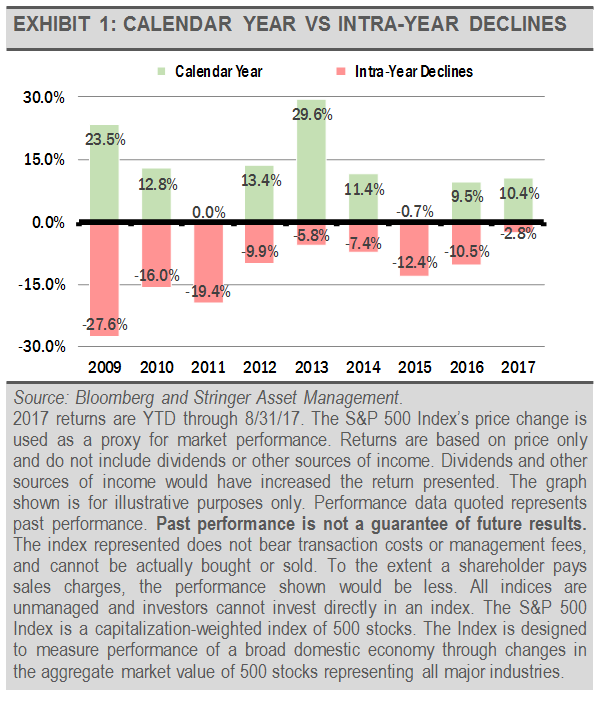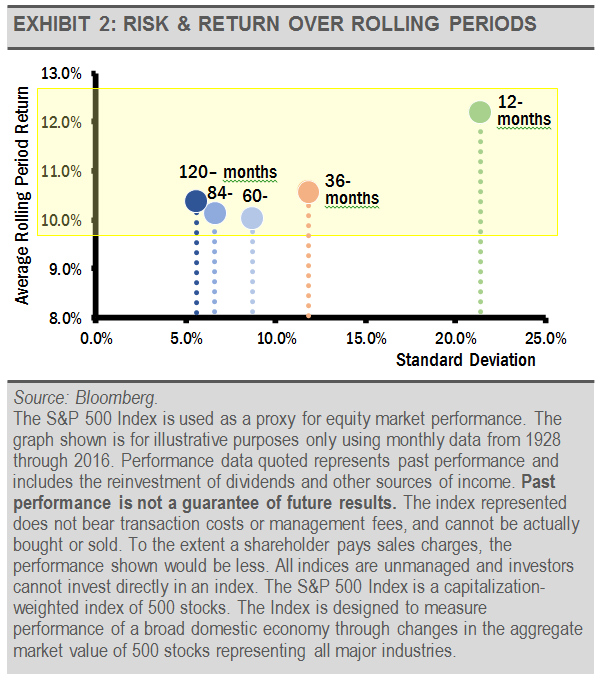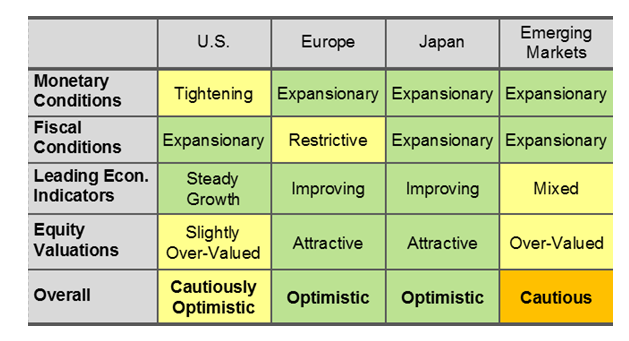![]() By Gary Stringer, Kim Escue and Chad Keller, Stringer Asset Management
By Gary Stringer, Kim Escue and Chad Keller, Stringer Asset Management
When looking at equity market performance over long periods of time, we see a decidedly upward bias. However, when we zoom in on shorter time periods, we begin to see periods of greater volatility. While the equity markets are not synchronized to a calendar, historically the U.S. equity market has suffered a price drop of 10% or more approximately every 18 months. It is important to note that market declines of this magnitude are not unusual and the equity market usually recovers quickly (exhibit 1). As a result, despite significant intra-year declines, the S&P 500 Price Index has exhibited positive calendar year returns in 31 of the last 37 years since and including 1980, or more than 80% of the time.
The current bull market has exhibited low volatility by historical standards. In fact, the last sizable equity market decline occurred 19 months ago in February of 2016. The lack of market volatility since then and the recent performance of some asset classes, such as emerging market stocks, downplay the risks associated with geopolitical uncertainties and other threats to market stability.
Though market volatility comes with equity investing, there are steps investors can take to cope with the stresses of market gyrations. The following are some of the time-tested solutions we have found.
 1) FOCUS ON YOUR LONG-TERM GOALS
1) FOCUS ON YOUR LONG-TERM GOALS
Goals based investing should be the focus. After all, achieving financial goals is what is important, not the randomness of day-to-day market moves. Setting future goals will help investors understand time horizons and risk tolerances. As we wrote in our piece, Time As An Asset, investors who have more time to reach their goals can view equity markets through a longer-term lens. As time horizons increase, equity market volatility decreases and investors can have more confidence in their expected outcomes (exhibit 2).
 2) FOCUS ON THE FUNDAMENTALS, NOT HEADLINES
2) FOCUS ON THE FUNDAMENTALS, NOT HEADLINES
It has been reported that CNBC’s ratings are much higher on market down days than on up days, as if viewers are looking for breaking news to explain every downturn. However, big declines are typically associated with recessions, and fundamentals do not change quickly. Rather than focus on the day’s headlines, which media outlets skillfully twist to drive ratings, investors should focus on the long-term fundamentals. The following table is a summary of our current views of the global economy and markets.


